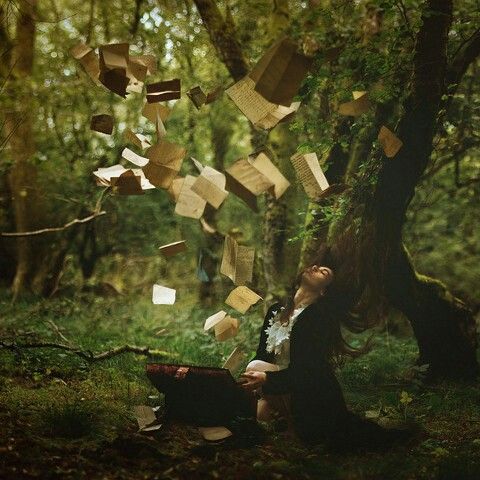|
I started 2018 by publishing for the dead. Since December, I have revised three books for posthumous publication. The authors, all elderly, had either been on the road themselves, or their families had found the books and wanted them published out of respect. So, when these books passed into my hands, they came with the full weight that I was probably the last editor. This book was eternally out of the author’s hands, and potentially all that remained of them in life.
At the same time, I- twenty-five and still effervescent, am slowly, emotionally parting ways with my first novel. Sending it off to agents and preparing it for publication- for real this time, I mean it. It’s not my book anymore, after all… But then, with all of readers and sharing, was it ever truly mine to begin with? Owning art is a tricky subject, and owning writing even moreso. If Vincent Van Gogh’s paintings hang in a gallery for the world to see, did Van Gogh ever truly own his work? This doesn’t even account for him being dead, nor the fact that he left this world under the notion that his art was a failure. Artists exist in an odd space, typically. Their work is often a middle ground between something entirely too personal and something meant to be shared with everyone. A voice for the world to hear. Some things are more personal than others (indeed, I have a slew of poetry I won’t publish under my author platform), but mostly, we fall between that which is ours and that which is the world’s. Some things are harder to give over to the world than others, notoriously the first novel. In this, I like to think of first novels like the oldest child; the one parents are the most nervous around, the one with the most rules and curfews. And even when it’s off to publication, they can be hard to let go. I have seen story after story of authors pulling published books just for full re-edits. Authors who shredded their old works just so they could write something new. Authors who simply cannot make peace with their lack of ownership. It wasn’t something I understood until I planned to share my first novel, via indie publishing, only to lose my nerve and renege at the last minute. “Never mind… I was wrong. It’s not done.” And no, it wasn’t done. Far from it, but it forced me to re-examine what made me so possessive of my work. After all, I loved sharing with my two alpha readers and often pulled ideas directly from our discussions. I had plenty of beta-readers, and even tested a few early chapters with online audiences. The world had already trickled into my work by then, so it wasn’t fully mine anymore. But even with another novel to write, letting go of what was mine in my first novel became a trial. Sometimes that’s a lifetime of struggle. We might all know someone who’s been writing the same book for years now, though they never dare to share a word. Many of the books I receive- typically from older authors, are those same first novels: last efforts to finally release a dream. And sometimes it is the last thing they do, which always gives me a bit of pause, wondering if they parted with their books happily. Were they content to publish, or did they simply run out of time? It is assumably impossible to worry about that ownership when you’ve passed on, after all. Writers are a proud kind of artist: they want a lot of different things from their work, but like any other creative sort, they do seek validation. They hope that if they revise long enough, work hard enough… That they can be enough for their book, so that their book will be enough for the rest of the world. Definitions of “enough” vary from person to person, and there’s nothing shameful about wanting one’s work to reflect a certain “enoughness” in yourself. We all want to be valid and praised for what we do: that’s a symptom of humanity. I suspect this is what makes leaving a project so difficult sometimes, particularly for the novice. It requires you step back and admit that what you’ve done and been for this project is enough. I’d also reckon that most authors- if not all, will never feel like they’re enough, and must be brave in spite of it. Returning to Van Gogh for a moment: my favorite episode of Doctor Who (well, one of my favorites) concerns the famous painter. The Doctor and Amy end up working with him in the late days of his life, in pursuit of a monster that Van Gogh has painted. The end is less monster-centric though, as The Doctor decides to take Van Gogh on a trip to a 2010 art exhibit. The rest is best experienced when viewed. When we “own” our works, we are often too close to them to realize their own power. And if we try to own our works at all, it is because we fear we are simply not perfect enough, talented enough, or savvy enough, to share them in a way that is meaningful. But I leave you with Vincent, because maybe- just maybe, the world is better for knowing your story. We are enough sometimes, simply for having created.
0 Comments
|
About MeCaitlin Jones is an author, film editor, and lover of all things Victorian and fantastic. Please check in for information on her upcoming series. Archives
August 2020
|

 RSS Feed
RSS Feed
